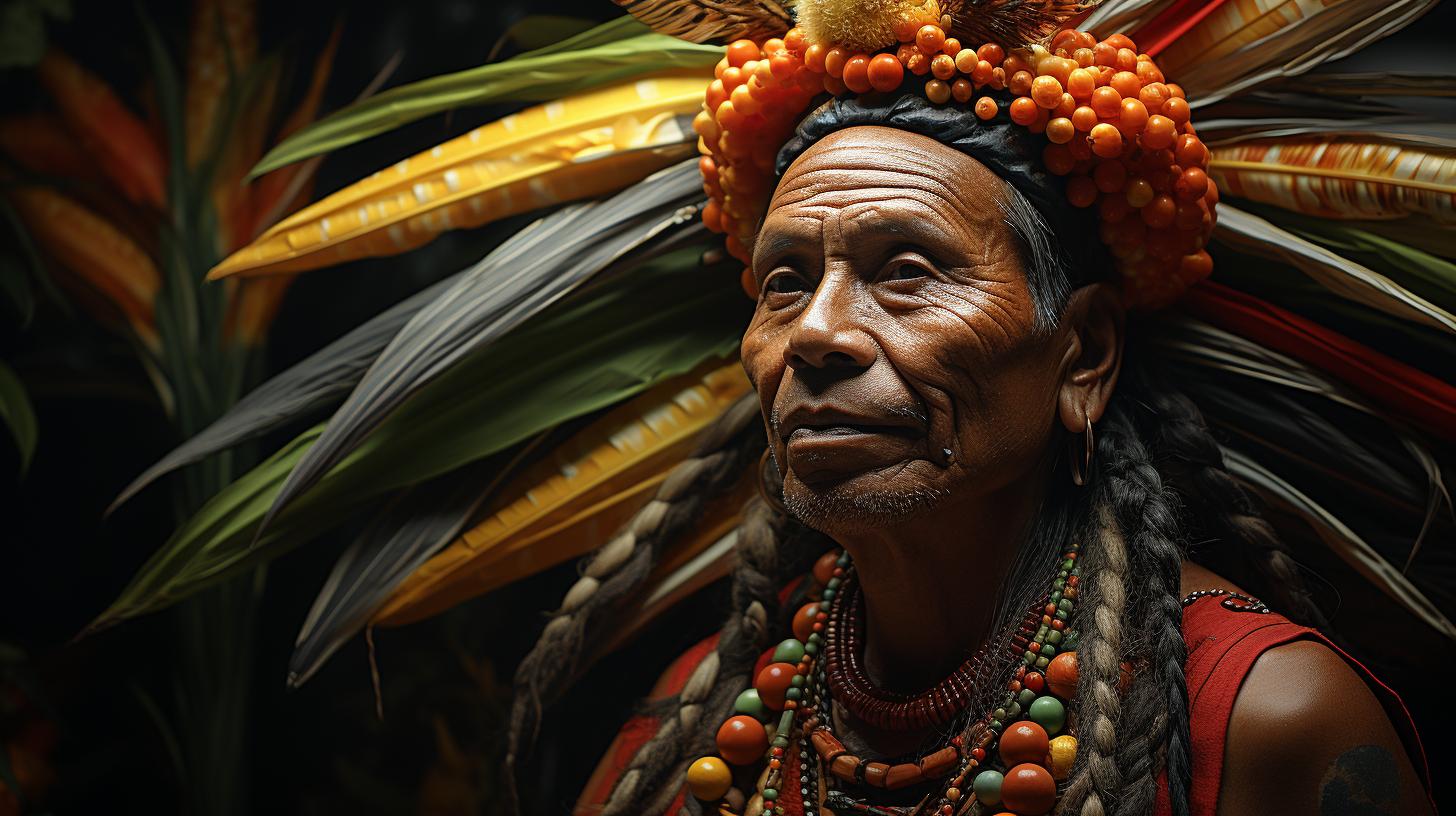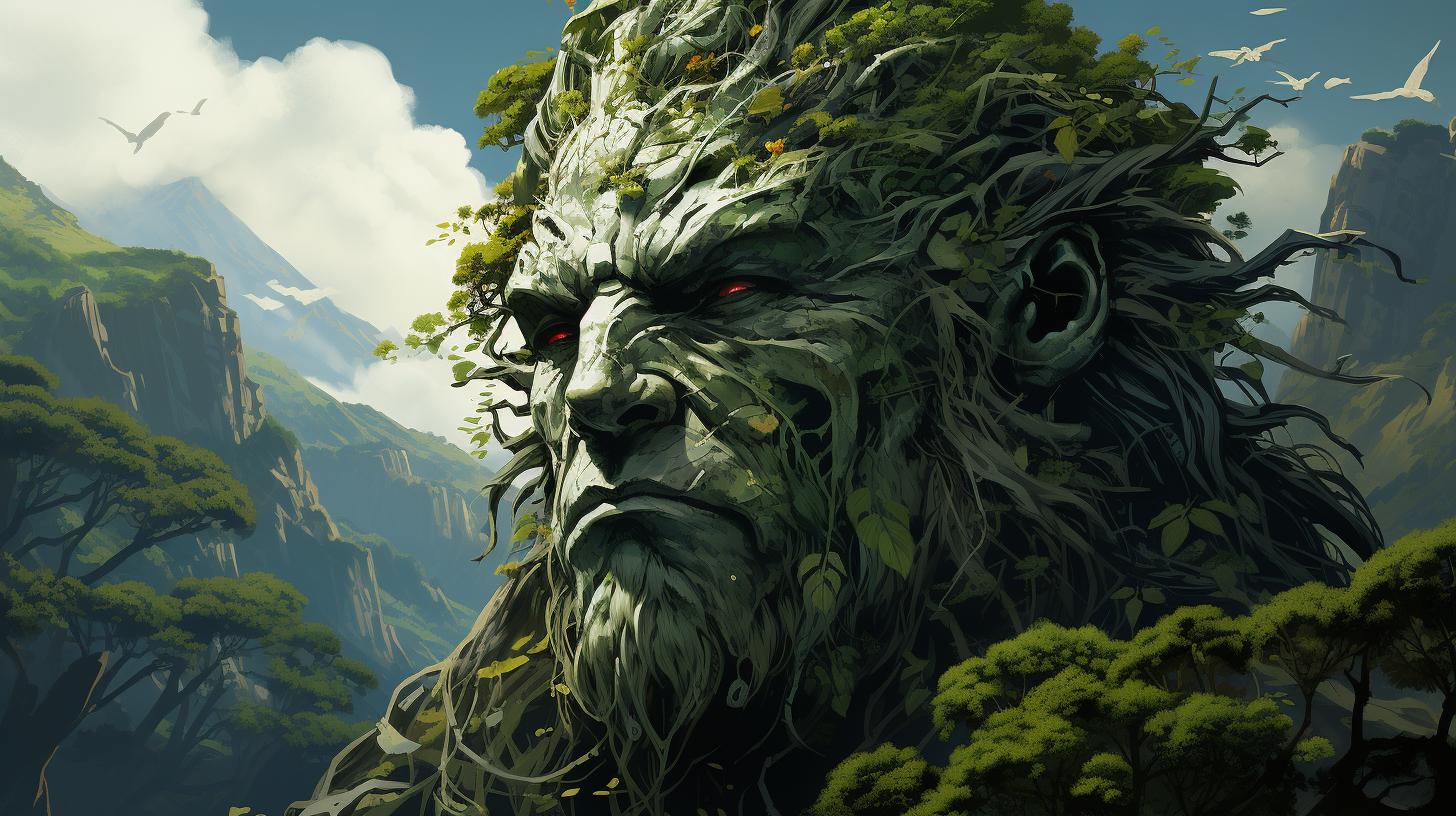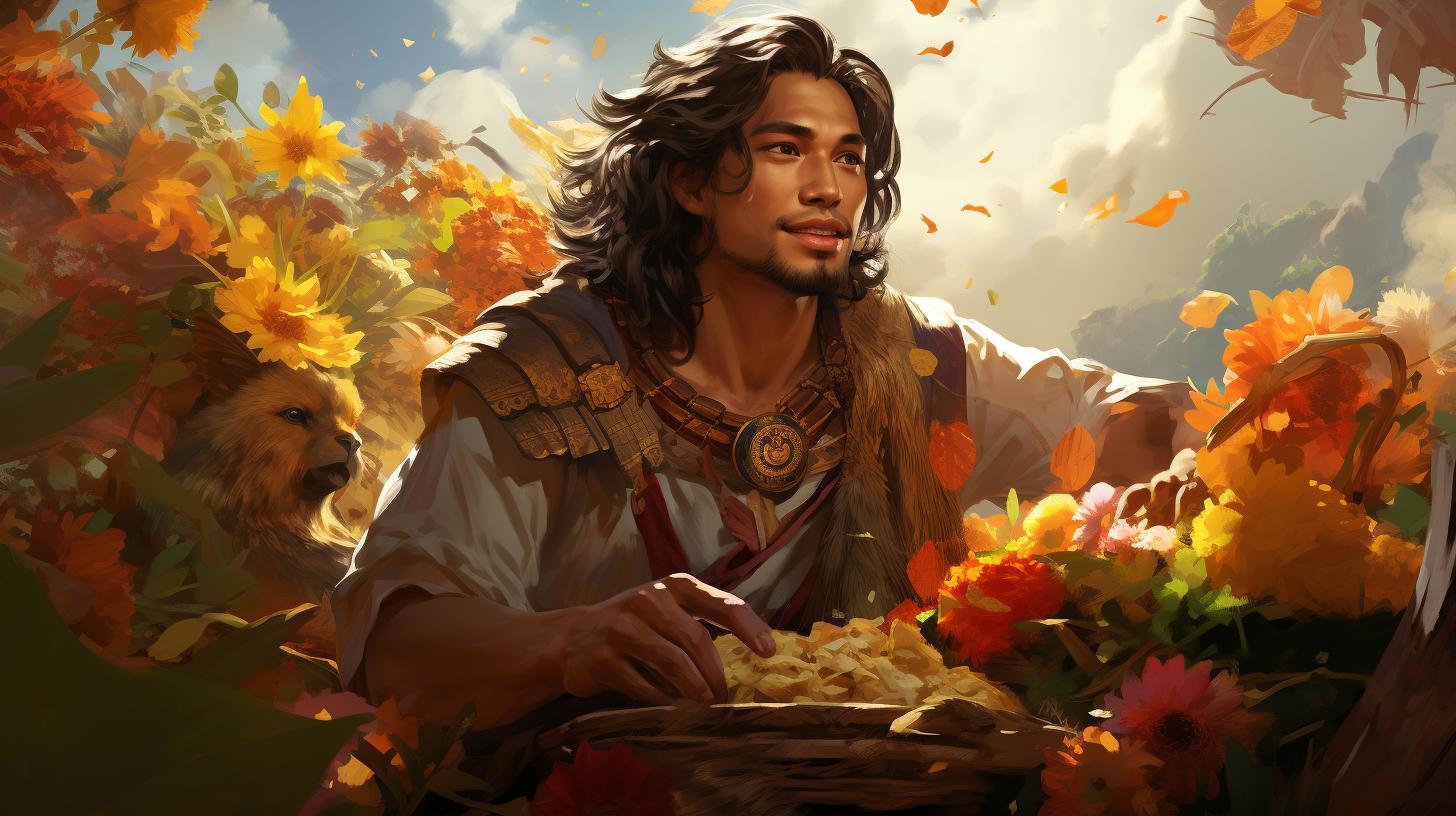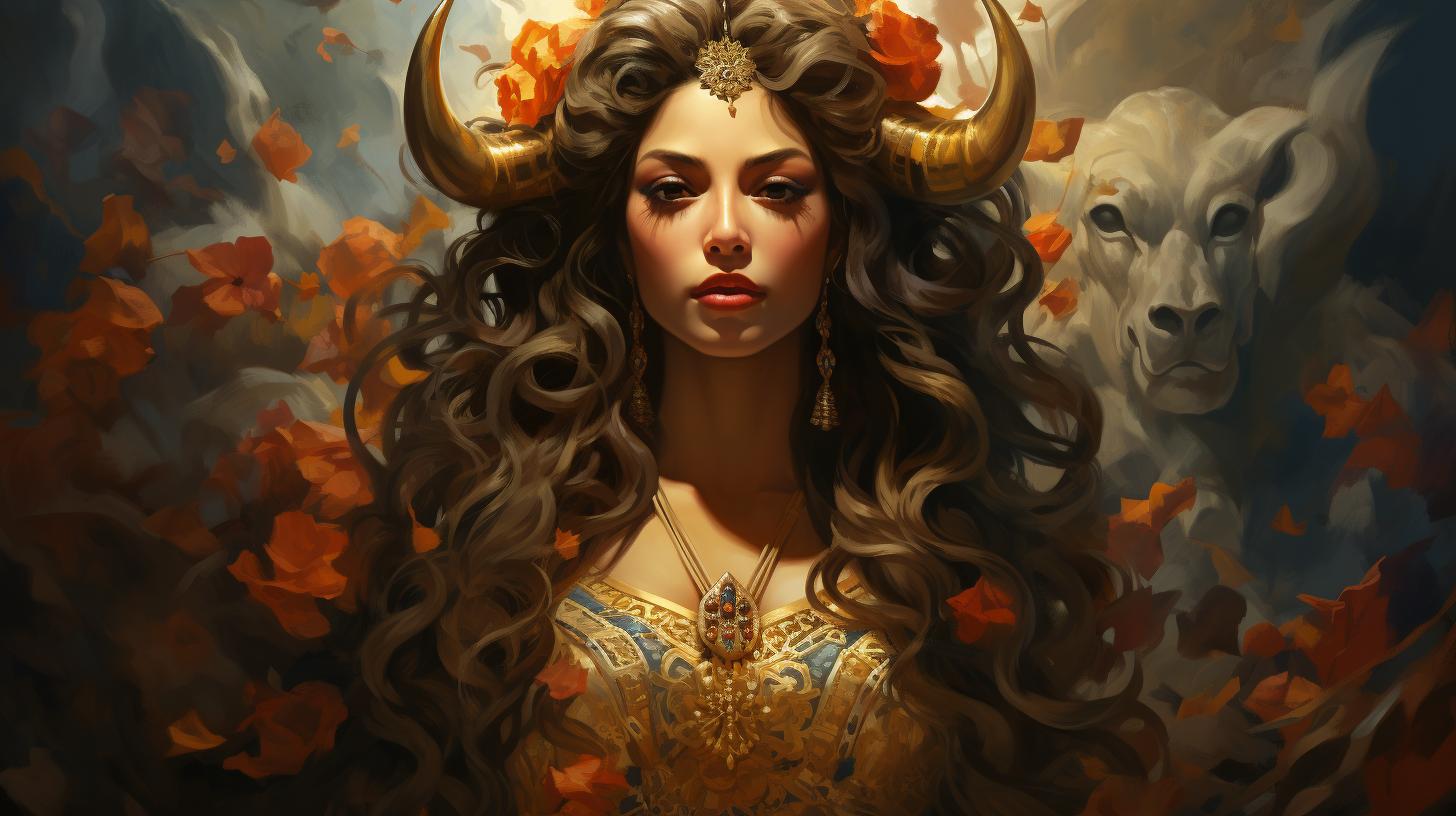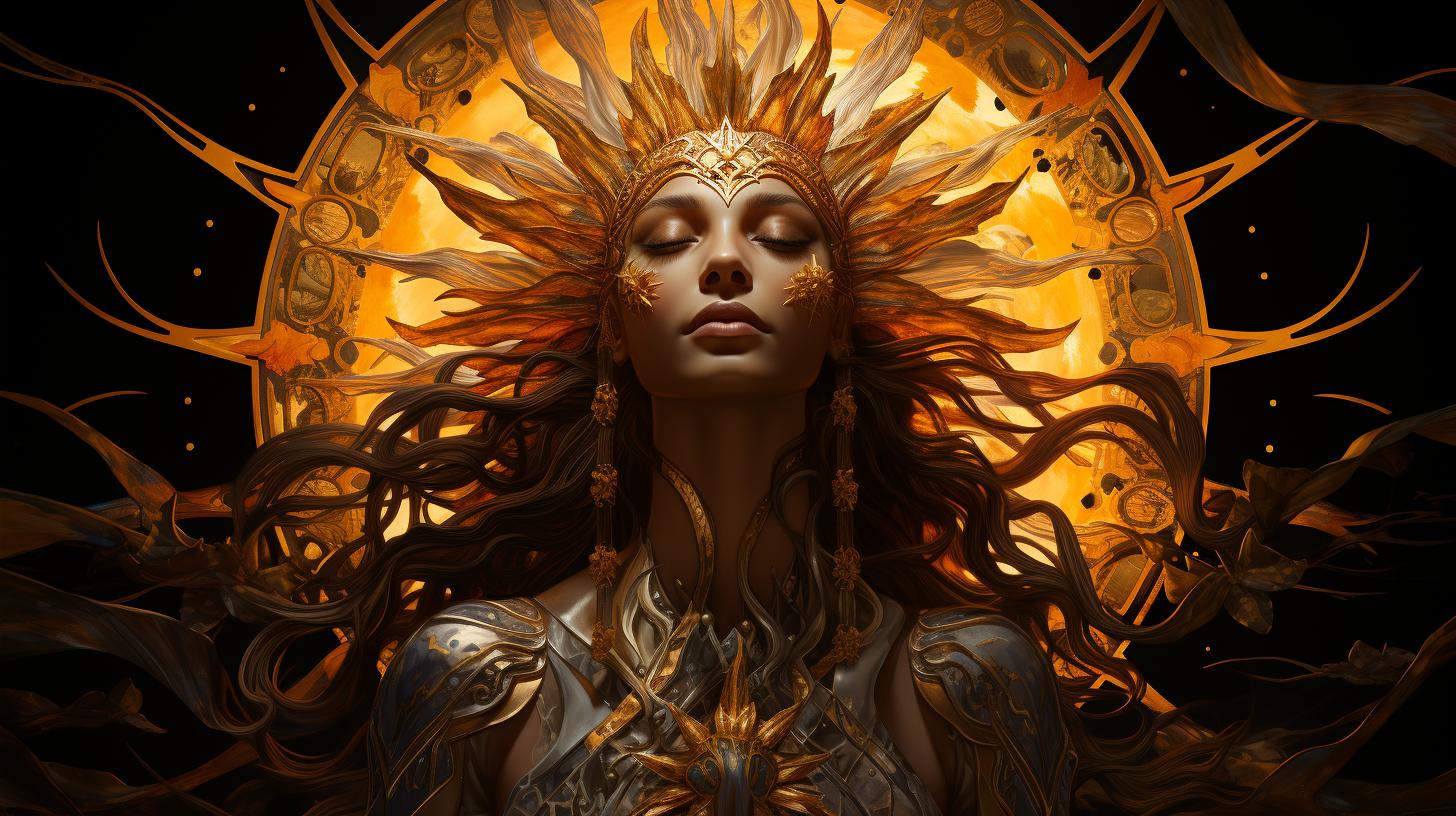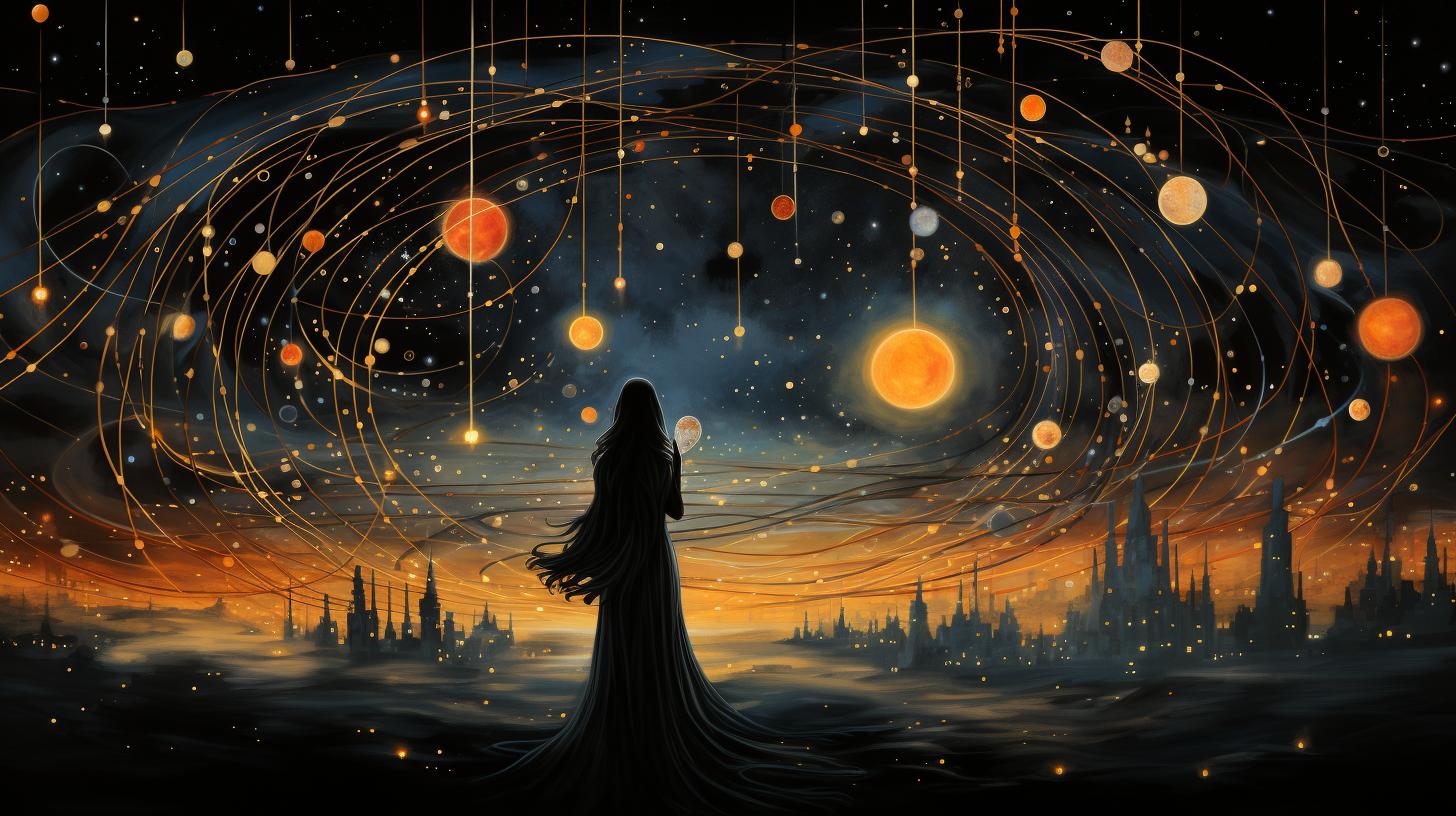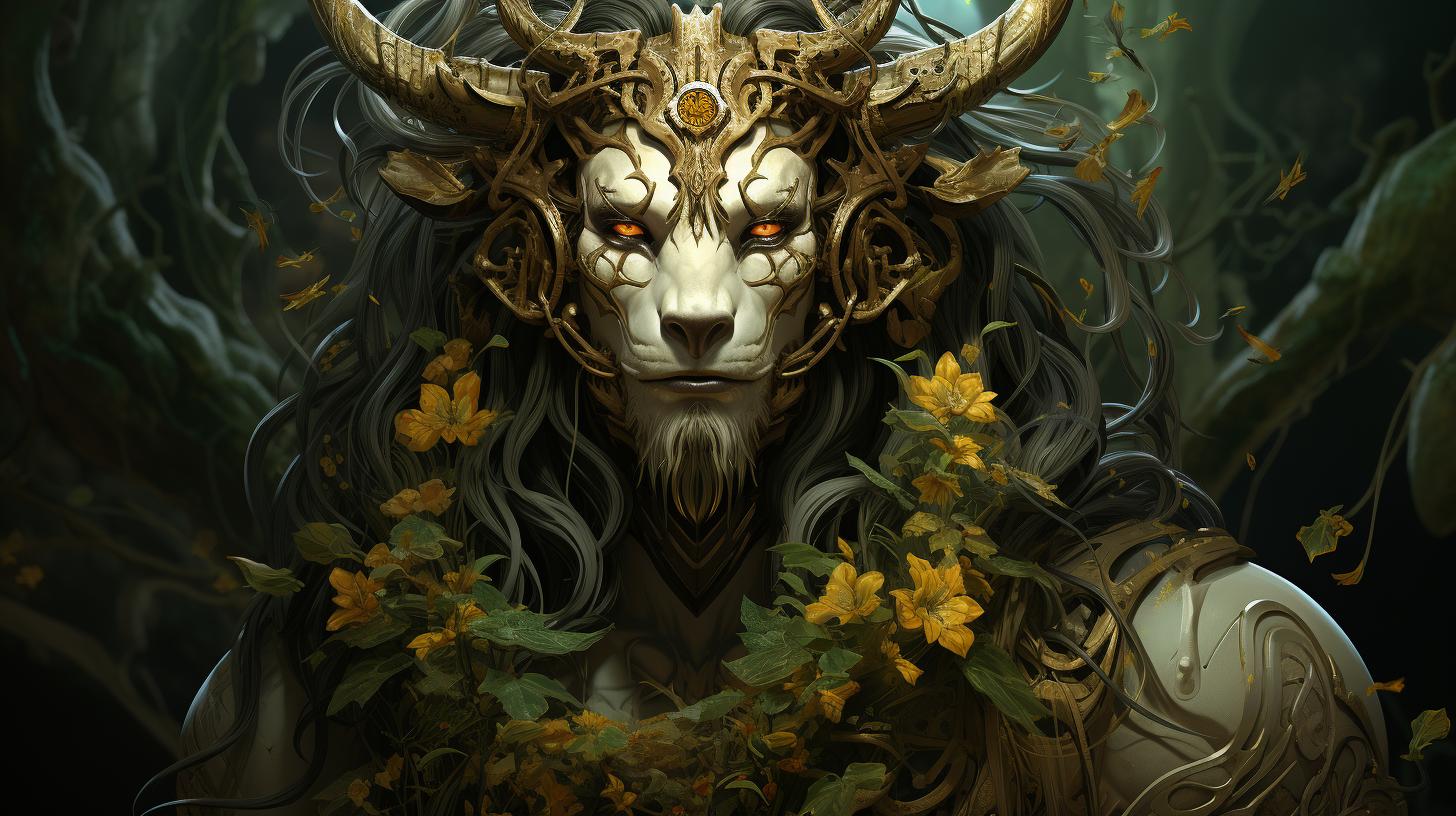Pamulak Manobo God: Exploring the Deity from the Philippines
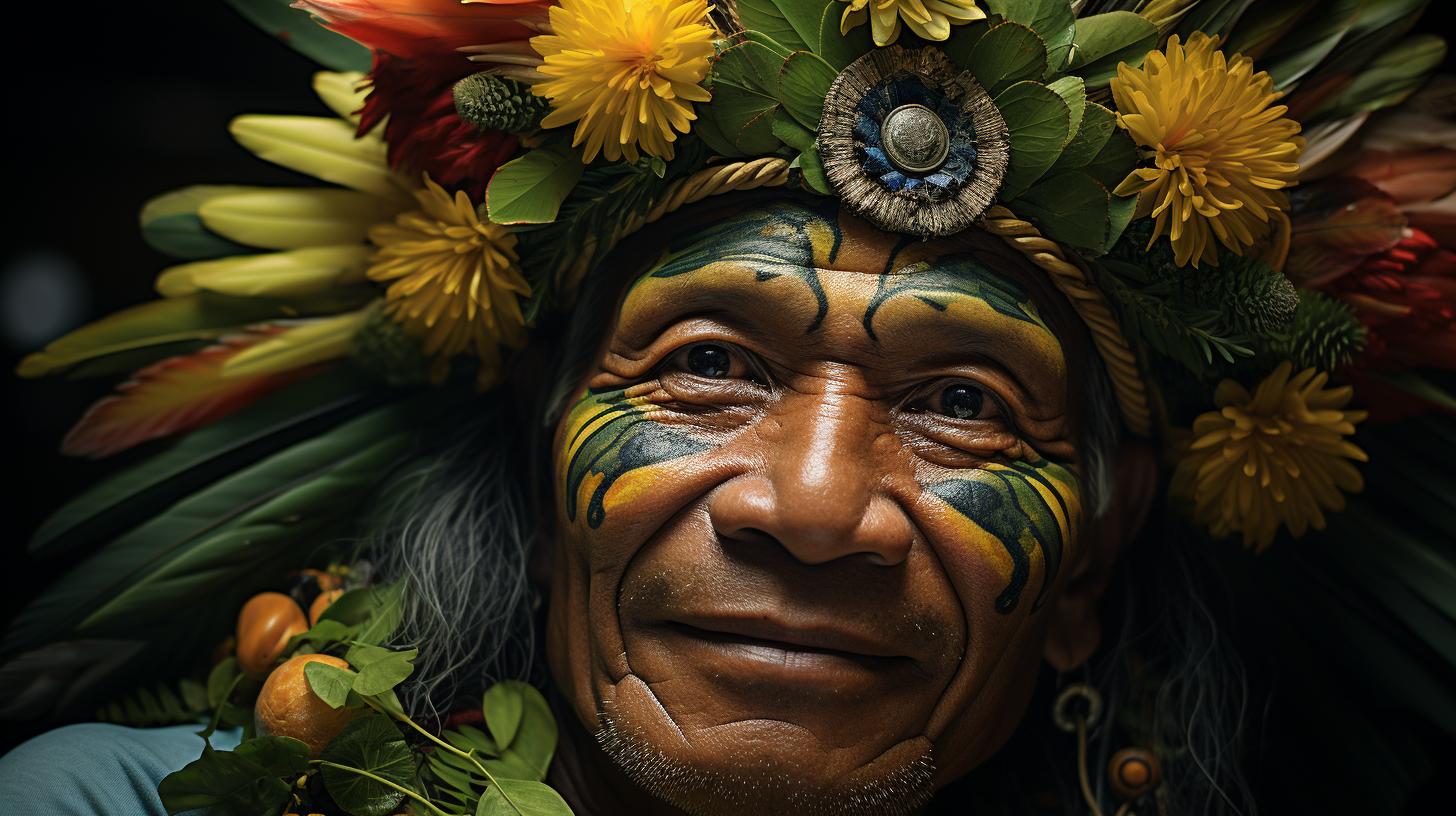
Pamulak Manobo God is a significant deity in the beliefs of the Bagobo tribe from Mindanao, Philippines. As a central figure in their mythology, Pamulak Manobo God holds a vital role in their cultural practices and rituals.
This article explores the origins, legends, and significance of Pamulak Manobo God within the Bagobo community. Additionally, it delves into the architecture, worship practices, connections to agriculture and nature, interactions with other tribes and deities, beliefs about the afterlife, and the contemporary importance of Bagobo traditions.
Background of Pamulak Manobo God
The Pamulak Manobo God holds a significant place in the belief system of the Bagobo tribe, one of the indigenous communities in the Philippines. The Bagobo people have a rich cultural heritage with unique customs, traditions, and mythologies.
Central to their worldview is the veneration of Pamulak Manobo God, a deity of great reverence and importance.
The etymology of Pamulak Manobo God’s name reflects their deep connection to nature and the divine.
The term “Pamulak” translates to “flower” in the Bagobo language, symbolizing the flourishing and blooming of life. “Manobo” signifies the ethnic identity of the Bagobo tribe, emphasizing the close relationship between the deity and the community.
Pamulak Manobo God is believed to be the creator of all things in the world, including human beings. This deity is associated with the heavens and is revered as the ultimate source of life and existence.
The Bagobo people attribute divine powers, wisdom, and guidance to Pamulak Manobo God, making offerings and performing rituals to honor and seek blessings from this revered deity.
Throughout their history, the Bagobo tribe relied on the wisdom and divine protection of Pamulak Manobo God.
This deity served as a guiding force, providing spiritual solace, and offering teachings on morality and values. The Bagobo people sought a harmonious relationship with nature, viewing themselves as stewards entrusted with the responsibility to care for the earth and its inhabitants, bestowed upon them by Pamulak Manobo God.
Understanding the background and significance of Pamulak Manobo God is essential to appreciate the rituals, beliefs, and cultural practices of the Bagobo tribe. It showcases their deep-rooted spirituality, values, and interconnectedness with the natural world.
The Mythology of the Bagobo Tribe
The mythology of the Bagobo tribe is a rich tapestry of tales and beliefs that have been passed down through generations. Within this mythology, the figure of Pamulak Manobo God holds great significance, revered as the creator of all things in the Bagobo cosmology.
The Origin of Pamulak Manobo God
According to Bagobo mythology, Pamulak Manobo God emerged from the primordial chaos, bringing order and life to the world. The exact origin story may vary among different Bagobo communities, but the overarching belief is that Pamulak Manobo God existed before time itself and played a pivotal role in the creation of the universe.
Legends Surrounding Pamulak Manobo God
Various legends and myths surround Pamulak Manobo God within Bagobo mythology. One such legend tells the story of how Pamulak Manobo God shaped the land, mountains, and rivers, bringing harmony and balance to the natural world.
Another legend speaks of Pamulak Manobo God’s role in bringing fire to humanity, symbolizing knowledge and enlightenment.
Furthermore, there are tales of Pamulak Manobo God’s interactions with other deities and spirits, showcasing the complex web of relationships within the Bagobo cosmology.
These legends serve to both explain natural phenomena and provide moral lessons.
Overall, the mythology of the Bagobo tribe is a testament to their deep connection with nature and the divine.
Pamulak Manobo God stands as a central figure within this mythology, embodying the creative force that shaped the world and continues to influence the lives and beliefs of the Bagobo people to this day.
The Significance of Pamulak Manobo God in Bagobo Culture
The Pamulak Manobo God holds immense significance in the cultural practices and beliefs of the Bagobo tribe from the Philippines. This deity is deeply woven into the fabric of their society, influencing both their rituals and daily life.
Rituals and Ceremonies Dedicated to Pamulak Manobo God
The Bagobo people honor Pamulak Manobo God through various rituals and ceremonies. These ceremonial practices are conducted with great reverence and serve as expressions of their devotion and gratitude. Offerings, prayers, chants, and dances form integral parts of these rituals.
In the Pagpa-kapya ritual, the Bagobo community comes together to seek the blessing and protection of Pamulak Manobo God. This ritual involves purification rites, offerings of food and agricultural produce, and performances of traditional dances in celebration of abundance and prosperity.
During the Homan-haway ritual, specifically performed by the Bagobo farmers, prayers are offered for a bountiful harvest. This ritual expresses their continuous reliance on the benevolence of Pamulak Manobo God in ensuring the success of their agricultural endeavors.
The Panalangin sa Dawat is another important ceremony that the Bagobo people conduct to seek guidance and blessings from Pamulak Manobo God. This ritual occurs in times of personal or communal challenges, demonstrating their trust in the deity’s protective power.
The Role of Pamulak Manobo God in Daily Life
For the Bagobo tribe, Pamulak Manobo God is not confined to ceremonial practices alone but is intricately entwined with their daily life. The deity’s teachings and values shape their moral compass and guide their actions within the community.
Pamulak Manobo God is considered the source of wisdom and knowledge. The Bagobo people seek his guidance in decision-making processes, especially in matters of communal governance, conflict resolution, and personal matters of great importance.
The deity’s influence extends to their understanding of harmony with nature and the interconnectedness of all living beings. The Bagobo people hold a deep respect for the environment, considering it a manifestation of Pamulak Manobo God’s creation, and strive to live in balance with nature.
Furthermore, the Bagobo people believe that Pamulak Manobo God blesses their pursuits and undertakings. They invoke his favor and seek his protection, whether it be in farming, hunting, craftsmanship, or any other aspect of their daily endeavors.
They attribute their successes and failures to the will of the deity.
The Significance of Pamulak Manobo God in Bagobo Culture is profound and fundamental, permeating all aspects of their lives.
It is through their devotion and adherence to the teachings and values of this deity that the Bagobo people preserve their cultural heritage and maintain a deep connection with their ancestral roots.
Other Deities in Bagobo Mythology
The Bagobo tribe, known for their rich mythology, worships not only the revered Pamulak Manobo God but also other significant deities within their belief system. These deities play integral roles in shaping their spiritual practices, traditions, and cultural identity.
Tuglay and Tuglibon: Assistants of Pamulak Manobo God
Among the deities in Bagobo mythology, Tuglay and Tuglibon hold prestigious positions as assistants to the Pamulak Manobo God. These divine beings play crucial roles in the Bagobo tribe’s everyday life, overseeing various aspects such as births, marriages, language, and customs.
Their influence extends beyond the spiritual realm, shaping the social fabric and communal harmony of the tribe.
Apo Tigyama: The Protector God
Apo Tigyama is another notable deity within Bagobo beliefs, revered as the Protector God. Bagobo mythology tells tales of Apo Tigyama’s watchful presence, safeguarding the tribe against malevolent forces and ensuring the overall well-being of the community.
Bagobo rituals often invoke Apo Tigyama’s protection, seeking his guidance and blessings for prosperity and security.
Other Gods and Goddesses in Bagobo Beliefs
Aside from the aforementioned deities, Bagobo mythology encompasses a pantheon of other gods and goddesses. Each holds a distinct role and significance in shaping the tribe’s understanding of the world. Some of these deities include:
- Dolowayen: The deity associated with agriculture and fertility.
- Tawig: The god of the harvest, ensuring abundance and prosperity.
- Mandarangan: The god of war, responsible for protecting the Bagobo tribe in times of conflict.
- Bulusan: The goddess of natural disasters, her powers capable of causing both destruction and balance in nature.
These other gods and goddesses contribute to the intricate web of Bagobo mythology, offering insight into their understanding of various aspects of life and the spiritual realm.
The diverse pantheon of deities within Bagobo mythology reflects the tribe’s complex spiritual heritage, enriching their cultural traditions and providing a unique lens through which they interpret the world around them.
Architecture and Worship Practices
The architecture and worship practices related to the Pamulak Manobo God are integral to the spiritual life of the Bagobo tribe. The tribe has a specific shrine known as the Parobanian, where rituals and ceremonies dedicated to their deity take place.
This section explores the significance of the Parobanian and the rituals and offerings performed there.
The Shrine Called Parobanian
The Parobanian is a sacred place within the Bagobo community that serves as a physical representation of their devotion to the Pamulak Manobo God. It is a meticulously constructed structure made of bamboo, rattan, and other natural materials, reflecting the tribe’s deep connection with nature.
Located in a central area of the village, the Parobanian stands as a symbol of reverence and spiritual gathering. The design of the shrine includes intricate carvings and decorations that depict important stories, legends, and symbols related to the Bagobo’s mythology and their relationship with the Pamulak Manobo God.
Rituals and Offerings at the Parobanian
The Parobanian is the sacred space where the Bagobo tribe performs various rituals and ceremonies to honor the Pamulak Manobo God. These rituals are an essential part of their worship practices and help to maintain a harmonious relationship with their deity.
During the rituals, Bagobo individuals gather at the Parobanian to offer prayers, chants, and songs to seek guidance, protection, and blessings from the Pamulak Manobo God. Offerings such as fruits, flowers, rice, and traditional crafts are carefully arranged as a sign of gratitude and respect.
The rituals also involve dance performances and storytelling, where the Bagobo people showcase their cultural heritage and pass down their knowledge and beliefs to the younger generations. These practices strengthen the community’s spiritual bond and foster a sense of belonging and identity.
The Parobanian and the associated rituals represent the enduring traditions and devotion of the Bagobo tribe towards the Pamulak Manobo God. The architecture serves as a physical manifestation of their spiritual connection, while the rituals and offerings provide a means to express their gratitude, seek guidance, and reinforce their cultural heritage.
Connections to Agriculture and Nature
Within the Bagobo cultural belief system, the connection to agriculture and nature is deeply intertwined with their worship of the Pamulak Manobo God. The Bagobo people recognize the importance of the land and its resources for their sustenance and survival, attributing their agricultural practices and success to the divine intervention of the deities.
Tarabumo: The God of Agriculture and Whom to Propitiate
One notable figure in Bagobo mythology is Tarabumo, known as the God of Agriculture. Tarabumo is regarded as a benevolent deity who oversees the growth and fertility of crops. To ensure a bountiful harvest, the Bagobo people have specific rituals and offerings dedicated to Tarabumo, seeking his blessings and favor.
They propitiate him through prayers, songs, and offerings of agricultural produce, including rice, fruits, and vegetables.
It is believed that Tarabumo has the power to bring forth rain and ward off pests or diseases that may affect the crops.
The Bagobo people deeply respect and honor Tarabumo, recognizing his pivotal role in their agricultural endeavors.
The Role of Pamulak Manobo God in Farming
The Pamulak Manobo God, as the creator of all things, holds a significant role in the Bagobo people’s farming practices. They believe that Pamulak Manobo bestows blessings upon their agricultural activities and ensures the fertility of the land.
When preparing the fields for planting, the Bagobo people often seek the guidance and protection of Pamulak Manobo, recognizing his divine authority in shaping the agricultural landscape. They engage in rituals and ceremonies to honor and connect with this deity, offering prayers and sacrifices to seek his favor and ensure a prosperous harvest.
The Bagobo people also believe that Pamulak Manobo influences the behavior of animals and the abundance of natural resources. They observe their surroundings and interpret the signs and patterns of nature as messages from Pamulak Manobo, guiding them in their agricultural endeavors.
In conclusion, the Bagobo people’s strong connection to agriculture and nature is deeply rooted in their worship and reverence for the Pamulak Manobo God. They recognize the divine influence in their farming practices and believe in the interconnectedness of their livelihood with the natural world around them.
Interactions with Other Tribes and Deities
The Bagobo tribe, including their worship of the Pamulak Manobo God, has a fascinating history of interactions with other tribes and deities in the region. These connections have influenced their religious beliefs, rituals, and cultural practices.
Relationships with Mandaragan and Other Gods
One significant aspect of the Bagobo tribe’s interactions with other tribes is their relationship with the deity Mandaragan. Mandaragan is revered as a powerful god associated with thunder, lightning, and warfare.
The Bagobo people believe that Mandaragan plays a vital role in protecting their community and guiding them during battles.
Beyond Mandaragan, the Bagobo tribe acknowledges the existence of numerous other deities and spirits.
These include Bulalakaw, the goddess of stars and creatures in the night sky, and Gyawan, the god of mountains and forests. The Bagobo people engage in rituals, prayers, and offerings to maintain peaceful connections with these deities and seek their favor and protection.
The War Between Mandaragan and Buso
One significant myth in the Bagobo tribe’s mythology is the epic war between Mandaragan and Buso, known as the antagonist deity. This conflict symbolizes the eternal struggle between good and evil, light and darkness.
It represents the Bagobo’s belief in the ultimate victory of righteousness over malevolence.
In this mythical war, Mandaragan and Buso engage in fierce battles, each trying to gain dominion over the realms of the mortal world.
Through their narratives and rituals, the Bagobo people continuously reinforce the significance of courage, righteousness, and perseverance in the face of adversity.
- Legend of Mandaragan and Buso
- Symbolism in Bagobo Culture
- Mythical Battles and Victories
- The Influence on Bagobo Values and Warriors
The Role of Pamulak Manobo God in the Afterlife
Within the intricate belief system of the Bagobo tribe, the Pamulak Manobo God holds a significant role in shaping their notions of the afterlife.
The Bagobo people believe in a complex cosmology that involves multiple realms and dimensions beyond our earthly existence. This section explores the concepts associated with the afterlife as perceived by the Bagobo community.
The Sky and the Underworld
The Bagobo believe in a division of the afterlife between the sky and the underworld. According to their beliefs, spirits of the deceased ascend to the sky realm, where they continue to dwell in a peaceful and blissful state.
The sky realm is seen as a place of eternal happiness, devoid of any suffering or pain.
On the other hand, the underworld is believed to be a realm where restless spirits and negative energies reside.
This realm is associated with punishment and suffering, where those who have committed grave sins or caused harm during their earthly lives face retribution. It is crucial to note that while the sky represents paradise, the underworld does not signify a place of eternal damnation but rather a purgatorial realm where spirits undergo purification.
Responsibilities and Beliefs Regarding the Dead
Bagobo traditions regarding the deceased also encompass various responsibilities and beliefs. When someone passes away, the community comes together to perform funeral rites, which aim to guide the spirit of the departed to the sky realm or aid them in their journey through the afterlife.
These rituals involve prayers, offerings, and sacred ceremonies conducted by spiritual leaders.
Additionally, the Bagobo place great importance on ancestor veneration. They believe that ancestors maintain a connection with the living and can influence their lives through blessings or guidance.
To honor their ancestors, the Bagobo offer prayers and perform rituals to maintain a harmonious relationship between the earthly realm and the spiritual realm of the deceased.
In the Bagobo belief system, it is also believed that the spirits of the deceased have the ability to intervene in the lives of their descendants.
They provide protection, guidance, and even warnings when necessary. The Bagobo maintain a deep respect for their ancestors and cherish their presence in their daily lives.
- The afterlife comprises both the sky realm and the underworld
- The sky realm represents eternal happiness and peace
- The underworld is a purgatorial realm of purification
- Funeral rites and ceremonies guide the spirits of the deceased
- Ancestor veneration maintains a connection with the spiritual realm
- Ancestors play a role in guiding, protecting, and influencing the living
Key Beliefs Regarding the Afterlife:
Understanding the role of Pamulak Manobo God in the afterlife provides insight into the complex beliefs and rituals that shape the Bagobo culture and their perspectives on death, spirits, and the continuation of life beyond the earthly realm.
Contemporary Importance and Revival of Bagobo Traditions
The preservation and celebration of Bagobo traditions hold significant importance in contemporary times. Efforts are being made to ensure that the rich cultural heritage of the Bagobo tribe is kept alive and passed down to future generations.
Preservation Efforts and Celebrations
A number of organizations and individuals are actively involved in preserving and promoting Bagobo traditions. Cultural preservation initiatives aim to document and showcase the unique customs, rituals, and beliefs of the Bagobo people.
Various cultural events and festivals celebrate the Bagobo heritage, providing a platform for the community to come together, share their traditions, and educate others about their customs. These celebrations serve as a reminder of the importance of preserving and cherishing the Bagobo cultural identity.
Modern Interpretations and Adaptations of Bagobo Beliefs
The modern world has brought about changes and adaptations in the way Bagobo traditions are practiced and understood. While preserving the core essence of their beliefs, the Bagobo community has also embraced new approaches to keep their culture relevant.
Some Bagobo individuals have found creative ways to express and reinterpret their beliefs through art, music, and literature. This modern interpretation allows for the exploration of Bagobo traditions from new perspectives while preserving their cultural integrity.
Furthermore, the revival of Bagobo traditions encompasses a renewed interest in indigenous knowledge and sustainable practices. The Bagobo people are actively involved in projects that promote eco-friendly initiatives and preserve their natural environment in line with their traditional beliefs.
Through the contemporary importance and revival of Bagobo traditions, the community strives to ensure that their rich cultural heritage continues to thrive, evolve, and inspire future generations.
.











